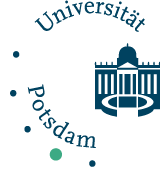The Department of Economics and Social Sciences
With business administration and economics, political and administrative sciences, and sociology as fields of study, the Department of Economics and Social Sciences has continuously renewed itself and created its own unique and independent brand label where research and teaching are closely intertwined.
Following a multi-theoretical approach, researchers are investigating the interactive relationship between politics, economy, and institutions at different levels and in different fields of activity. The interdisciplinary approach allows for a study of the interplay between the economy, public and private institutions, and policy-making. Problems of governance between state, economy, and civil society are just as much a concern as problems of governance within the very differentiated public sector. Political and administrative scientists, sociologists, and economists are combining their efforts, working on collaborative projects.
The interplay of different research approaches and methods creates empirical and theoretical knowledge that transmits a complex and differentiated picture of socioeconomic, cultural, and political developmental processes in modern societies – domestically as well as internationally.
Public Policy and Management is the exclusive profile area at the faculty. The Potsdam Center for Policy and Management (PCPM) serves as the organizational backbone of this special profile area. PCPM ensures active national and international knowledge transfer with its research and consulting projects as well as opportunities for academically-focused continuing education.
A recent study by the German Association for Political Science declared the University of Potsdam one of the three most important German universities and research institutions in the area of policy research and administrative sciences.
The Center for Higher Education Development considers the Master’s and PhD programs offered here to be among the very best in Europe. The joint degree programs with the Ecole Nationale d’Administration in Paris, with the Berlin universities, and with the Hertie School of Governance enjoy an excellent international reputation.
The recently established Research Training Group WIPCAD is an integral part of this high-ranking profile of the faculty.

Professor for Sociology of Gender
„Members of our Department share a vivid interest in the institutional and organizational research of the public sector. Together we offer a creative team collaboration, innovative research, and the development of sustainable junior research in the field.“
Potsdam Graduate School
WIPCAD PhD fellows are automatically members of the network of the doctoral fellows at the University of Potsdam, the Potsdam Graduate School (PoGS). The task of the PoGS is to continue and to optimize doctorate conditions for graduate students and to secure the quality of their projects. Transparency within doctoral procedures and intensive mentoring are vital in doing so.
PoGS Quality Criteria
To ensure the good scientific practice and transparency, the PoGS has developed a comprehensive catalogue of criteria that are geared towards internationally acknowledged quality standards in structured doctoral candidate education. The quality criteria are regarded as minimum standards to be met for a dissertation project.
WIPCAD supports this catalogue. It can be downloaded here:
PoGS Quality Criteria
The PoGS quality criteria take in account the DFG’s recommendations on safeguarding good scientific practice: “Proposals for Safeguarding Good Scientific Practice. Recommendations of the Commission on Professional Self-Regulation in Science”, approved by the DFG’s General Assembly on 3 July 2013
